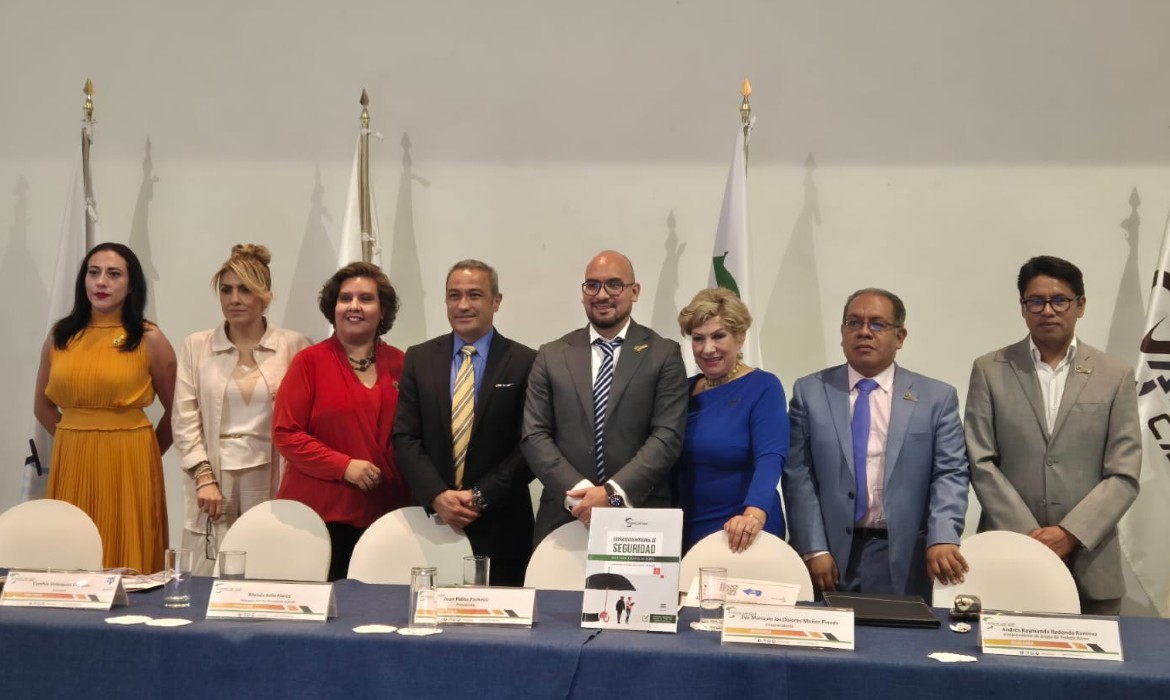
“The Mexican Association of Freight Forwarders (Amacarga) aims to minimize various risks in the supply chain, such as drug trafficking or money laundering, through 10 international security standards and other actions.
Juan Pablo Pacheco, president of the organization, stated that these measures will allow freight forwarders to embed themselves in the supply chain security and within the Customs Law.
“Hopefully, several of the 400 associates will be interested in participating and understand that security is a fundamental element for business and logistics chains’ development. Cargo should not be contaminated by precursors, narcotics, or drugs, and for that, it is necessary to analyze everyone involved, including personnel, suppliers, or clients,” he explained.
He detailed that the Guide for Freight Forwarders was developed by Amacarga’s Security Committee and establishes the following 10 international standards in asset security:
- Supply chain security planning.
- Physical security.
- Physical access controls.
- Business partners.
- Process security.
- Security of cargo vehicles, containers, trailers, and semitrailers.
- Personnel security.
- Information and documentation security.
- Security training and awareness.
- Incident management and investigation.
Jorge Chávez Zarate, representative of the International Federation of Authorized Economic Operators (IFAEO) in Mexico, emphasized that globally, supply chains face “enormous risks” such as terrorism, drug trafficking, organized crime, goods contamination, and post-pandemic risks like disruptions.
“Ahead of these types of risks, we are precisely promoting certification with common security language among the sectors in the federation. These 10 standards will be able to promote and assist in the risk management of the chains,” he commented.
Carlos Eduardo Farfán, Vice President for the Americas of IFAEO, mentioned that Mexico and Colombia have problems associated with narcotics, and in addition to these countries, China and India are the main routes for fentanyl, cocaine trafficking, money laundering, “and to the extent that freight forwarders have more preparation in risks, measures, we will be at the bottom of the list of those criminals or criminal groups who would want to use us.”
Eva Muñoz, Vice President of Amacarga, considered that the relocation phenomenon is “a historic opportunity” that will kick off next year, so through the standards, freight forwarders are “preparing for that start, because the more security we present to our friends in the north, the easier it is for them to turn to us.”
“What are we to them? We are the neighbor down south, but we are also the risk to their security due to the entry of narcotics we have and a series of circumstances that are beyond entrepreneurs’ control. Nearshoring is there, the possibilities are there, and the preparation is what we lack,” she said.
In a press conference, she mentioned that out of 10 companies that have undergone training, 60% of them comply with at least one of the standards.
Likewise, Juan Pablo Pacheco explained that currently, there is no legislation for freight forwarders, and they seek recognition in the Customs Law, and “the goal of the 10 points is to demonstrate that freight forwarders have the capacity to provide that added value in terms of security.”
Comment and follow us on X: @evandeltoro / @GrupoT21















